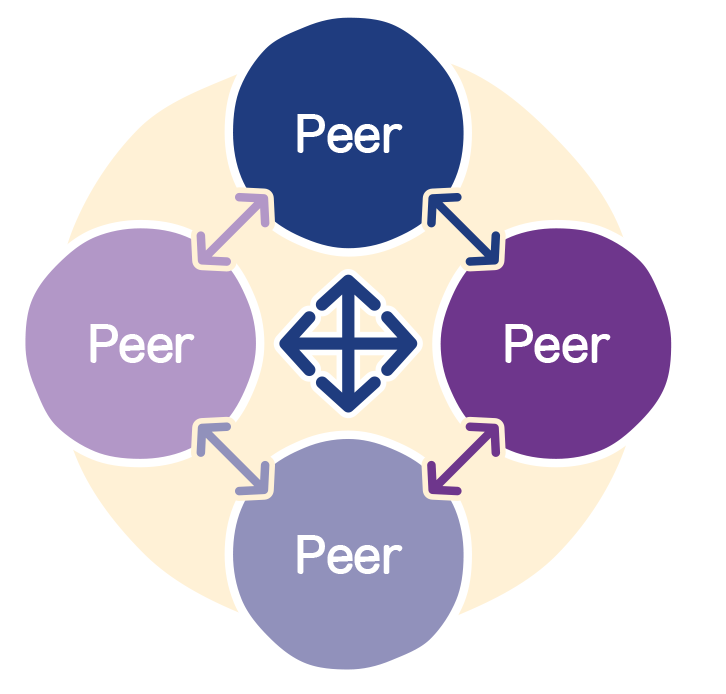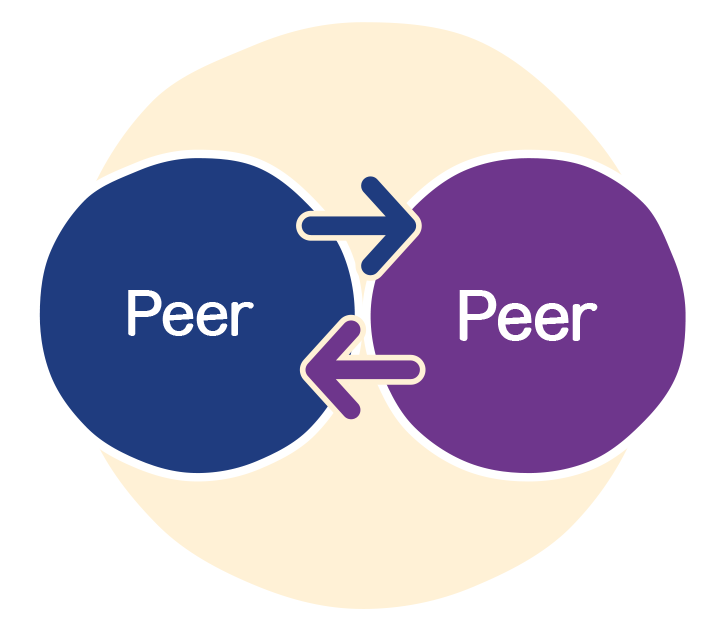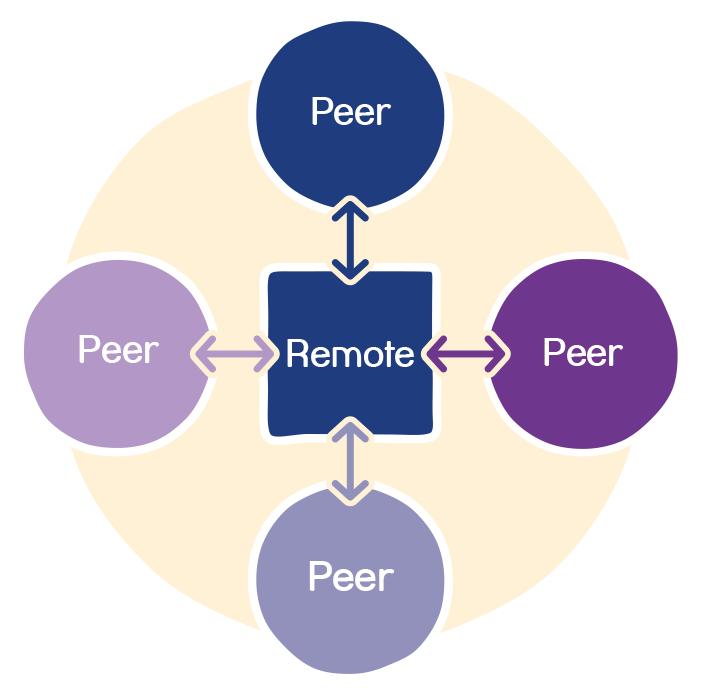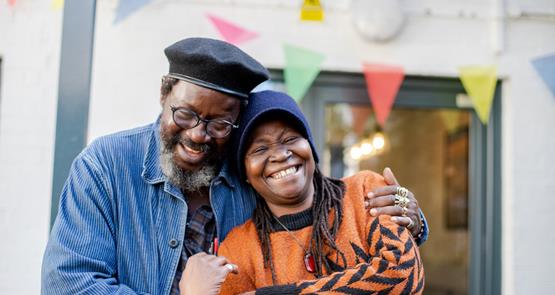Understanding peer support
This page covers the different types of peer support, and the underlying principles of peer support. This information is useful for anyone who's setting up a new peer support project, or anyone looking to review a current project.
Peer support is when people use their own experiences to help each other. There are different types of peer support, but they all aim to:
- bring together people with shared experiences to support each other
- provide a space where you feel accepted and understood
- treat everyone’s experiences as being equally important
- involve both giving and receiving support.
Our research has found 6 core peer support values, which you can see here in the pyramid. Skip to read more about the core values.
Types of peer support
Peer support is very flexible, with people involved in giving, receiving and sharing support in many different ways. This means that it can be tailored to both the people who are part of it and the local community where it takes place. There are many different ways in which peer support is happening across the country. This rich diversity is something to be celebrated. There are 3 broad approaches to peer support.

Group peer support
This involves 3 or more people coming together to support each other. There are many ways of doing this, from groups that allocate a number of official roles and run structured activities, right through to loose, informal gatherings.
One-to-one peer support
This involves 2 people who support each other. This may be in a very informal context, for example 2 friends coming together to talk about a shared problem. In some cases of more formally organised one-to-one peer support, one person may have had some training, for example in mentoring skills. One person may also be further along their ‘mental health journey’. This may mean that one person may provide more support to the other at times.


Remote and online peer support
There are websites and social media forums designed to facilitate peer support remotely. These may be available at any time of the day or night and can permit people to remain anonymous. With the onset of Covid-19, many peer support groups moved to offering peer support remotely, whether using online video platforms or more conventional phone, text and WhatsApp channels.
Core values
The Side by Side research identified a set of core values that make peer support different from other forms of mental health support. Many of these values relate to the ways in which people treat each other in peer support relationships. This toolkit outlines 6 core values that are essential to any form of peer support (group, one-to-one, remote). The values are accompanied by reflection questions to help you consider how it relates to your peer support project.
Click on one of the values to read more.
Even if your peer support project is well established, it’s important to keep revisiting these values. The way that each value is demonstrated can change over time and new group members need opportunities to contribute. Importantly, there is no perfect way to apply these values. It’s helpful to reflect on how they relate to your peer support and whether they prompt you to do anything differently.

















